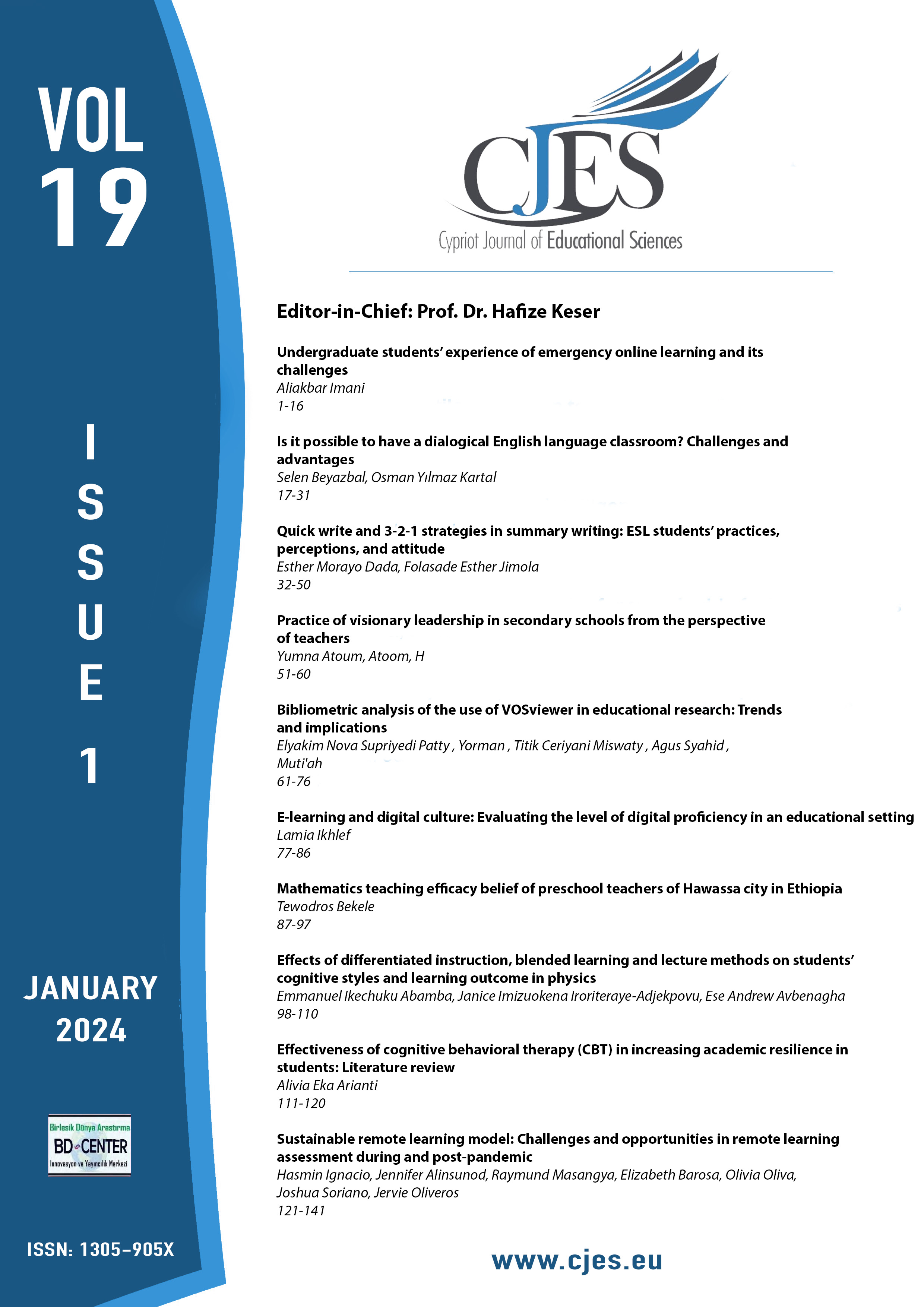Mathematics teaching efficacy belief of preschool teachers of Hawassa city in Ethiopia
Main Article Content
Abstract
The ability of a teacher to plan and carry out the required actions to achieve desired results is known as teacher effectiveness. Although views and subject matter expertise, particularly when teaching mathematics, are key determinants in teachers' ability to teach pupils effectively. This study uses the Mathematics Teaching Efficacy Belief Instrument (MTEBI), adapted and translated into Ethiopian Amharic, to ascertain preschool teachers' efficacy views towards early math teaching in Hawassa City. Participants in the research were teachers who work in both public and private preschools in Hawassa City. Forty-four preschool teachers participated in the data collection. The results showed that there is a low belief in the efficacy of teaching early math, and the majority of participants were unsure or uncertain about teaching early math effectively. There was no significant difference among KG teachers' efficacy beliefs on teaching beforehand early math in their time of experience. Also, there was a significant difference between private and public preschool teachers’ efficacy beliefs in teaching early math.
Keywords: belief; efficacy; kindergarten teacher; math; teaching
Downloads
Article Details

This work is licensed under a Creative Commons Attribution 4.0 International License.
Cypriot Journal of Educational Sciences is an Open Access Journal. The copyright holder is the author/s. Licensee Birlesik Dunya Yenilik Arastirma ve Yayincilik Merkezi, North Nicosia, Cyprus. All articles can be downloaded free of charge. Articles published in the Journal are Open-Access articles distributed under a CC-BY license [Attribution 4.0 International (CC BY 4.0)].
Birlesik Dunya Yenilik Arastirma ve Yayincilik Merkezi (BD-Center)is a gold open-access publisher. At the point of publication, all articles from our portfolio of journals are immediately and permanently accessible online free of charge. BD-Center articles are published under the CC-BY license [Attribution 4.0 International (CC BY 4.0)], which permits unrestricted use, distribution, and reproduction in any medium, provided the original authors and the source are credited.

